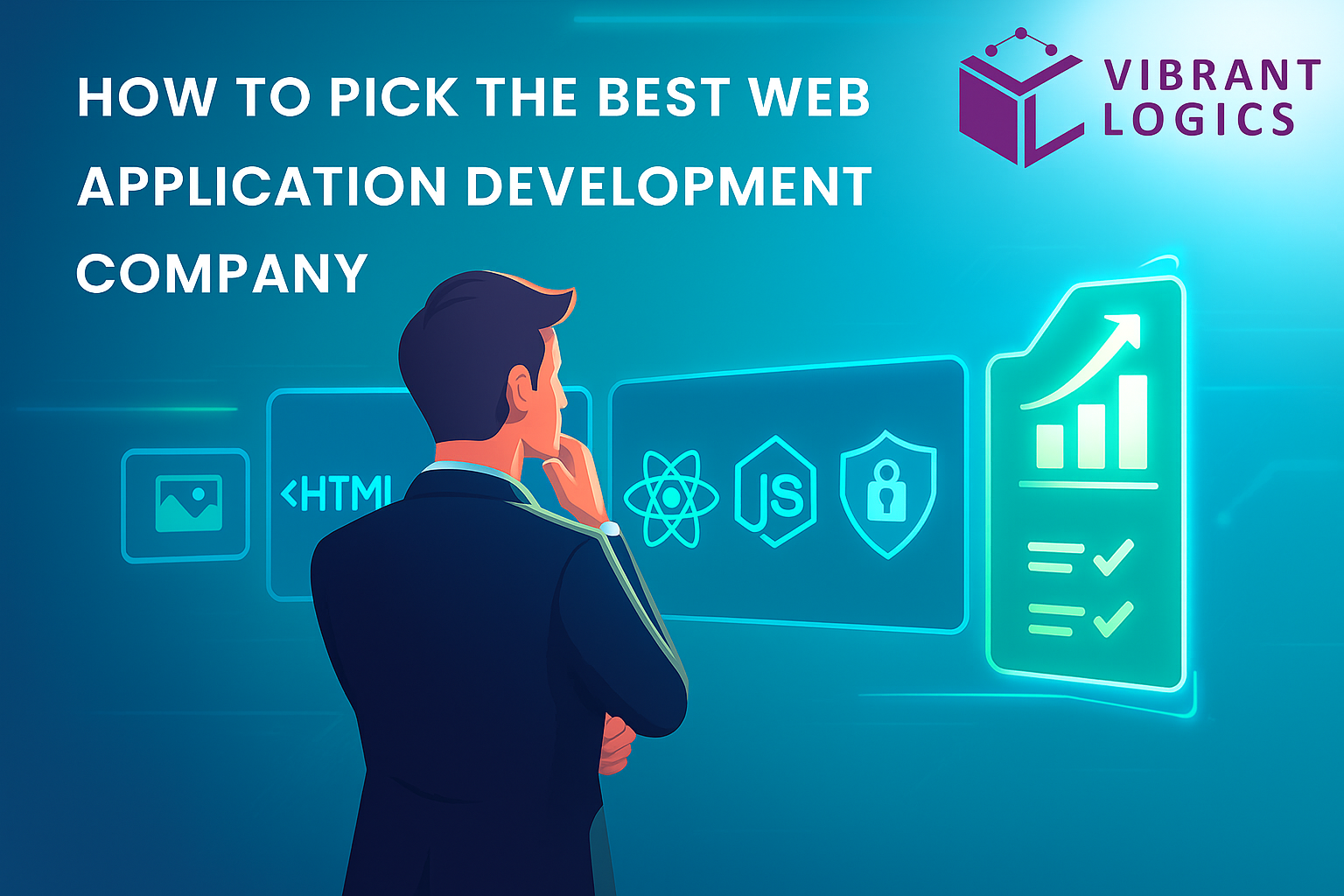Choosing the best web application development company can make or break your digital transformation. With over 26.5 million developers worldwide and thousands of development agencies claiming expertise, businesses face a challenging decision that directly impacts their online success.
The wrong choice leads to budget overruns, missed deadlines, and applications that fail user expectations. The right partner delivers scalable solutions, seamless user experiences, and measurable business growth.
What Makes a Web Development Company Worth Your Investment?
A quality web development company combines technical expertise with business understanding. They deliver custom solutions that solve real problems, not generic templates that look impressive but lack functionality.
Key indicators include proven track records with similar projects, transparent communication processes, and development teams that understand your industry’s specific challenges. The best companies also provide ongoing support beyond project completion.
Essential qualities to look for:
- Portfolio of successful web applications
- Clear project management methodology
- Transparent pricing structure
- Post-launch maintenance services
- Industry-specific experience
How Do You Evaluate Technical Expertise?
Technical skills separate competent developers from exceptional ones. Look for companies that demonstrate mastery across multiple programming languages, frameworks, and modern development practices.
Ask potential partners about their experience with technologies relevant to your project. A best web application development company stays current with emerging trends while maintaining expertise in proven technologies.
Technical areas to assess:
- Frontend frameworks (React, Angular, Vue.js)
- Backend technologies (Node.js, Python, PHP)
- Database management systems
- Cloud deployment strategies
- Security implementation practices
- Mobile responsiveness standards
What Questions Should You Ask During Consultations?
The consultation process reveals how well a company understands your needs. Experienced developers ask detailed questions about your business goals, target audience, and existing systems before proposing solutions.
Red flags include companies that provide instant quotes without understanding your requirements or those that promise unrealistic timelines for complex projects.
Critical questions to ask:
- How do you handle project scope changes?
- What is your typical development timeline?
- Can you provide client references from similar projects?
- How do you ensure data security and compliance?
- What post-launch support do you offer?
How Important Is Industry Experience?
Industry-specific knowledge accelerates development and reduces costly revisions. Companies familiar with your sector understand regulatory requirements, user expectations, and common integration challenges.
Healthcare applications require HIPAA compliance, while e-commerce platforms need robust payment processing and inventory management. Generic development approaches often miss these critical requirements.
Benefits of industry expertise:
- Faster requirement gathering
- Reduced compliance risks
- Better user experience design
- Smoother third-party integrations
- Lower long-term maintenance costs
What Role Does Communication Play in Project Success?
Clear communication prevents misunderstandings that derail projects. The best development companies establish regular check-ins, provide progress updates, and maintain open channels for feedback throughout the development process.
Time zone differences and language barriers can complicate offshore development. Evaluate communication styles during initial discussions to ensure compatibility with your team’s working preferences.
Communication essentials:
- Regular progress meetings
- Accessible project management tools
- Clear documentation practices
- Responsive support channels
- Cultural compatibility
How Do You Compare Pricing Models?
Development companies use various pricing structures, each with distinct advantages. Fixed-price contracts work well for clearly defined projects, while hourly rates offer flexibility for evolving requirements.
Avoid choosing solely based on the lowest bid. Cheap development often leads to expensive fixes, delayed launches, and poor user experiences that damage your brand reputation.
Common pricing models:
- Fixed-price contracts
- Hourly billing rates
- Monthly retainer agreements
- Equity-based partnerships
- Hybrid pricing structures
What Should You Expect During the Development Process?
Professional development follows structured methodologies that ensure quality and timely delivery. Agile development approaches allow for regular feedback and adjustments, while waterfall methods work better for projects with fixed requirements.
Expect regular demonstrations of progress, opportunities to provide feedback, and transparent reporting on challenges or delays. Quality companies proactively address issues rather than waiting for problems to escalate.
Development phase expectations:
- Detailed project planning
- Regular milestone demonstrations
- Quality assurance testing
- User acceptance testing
- Deployment and launch support
How Do You Verify Company Credentials?
Research extends beyond marketing materials and sales presentations. Check client testimonials, review portfolios, and verify claimed expertise through third-party validation sources.
LinkedIn profiles of team members, GitHub repositories, and industry certifications provide insights into actual capabilities versus marketing claims.
Verification methods:
- Client reference calls
- Portfolio project analysis
- Team credential reviews
- Online reputation research
- Industry certification checks
What About Post-Launch Support and Maintenance?
Web applications require ongoing maintenance, security updates, and feature enhancements. Companies that disappear after launch leave you vulnerable to security threats and technical issues that can cripple operations.
Establish clear expectations for post-launch support, including response times for critical issues, update schedules, and procedures for requesting new features or modifications.
Support considerations:
- Bug fix response times
- Security update procedures
- Performance monitoring
- Backup and recovery plans
- Feature enhancement processes
Conclusion
Selecting the right web development partner requires careful evaluation of technical capabilities, communication skills, and industry experience. The decision impacts not just your initial project but your long-term digital success.
Focus on companies that demonstrate genuine interest in understanding your business needs, provide transparent communication throughout the process, and offer comprehensive support beyond launch. The investment in thorough vetting pays dividends through successful project outcomes and lasting partnerships.
Ready to transform your digital presence with a development partner that delivers results? Vibrant Logics combines cutting-edge technical expertise with deep business understanding to create web applications that drive real growth. Our team of experienced developers has successfully launched over 200 web applications across diverse industries, from healthcare platforms to e-commerce solutions. We don’t just build websites – we craft digital experiences that convert visitors into customers and streamline your operations. Every project includes our signature post-launch support package, ensuring your application stays secure, fast, and competitive. Discover how Vibrant Logics can accelerate your digital transformation and join the growing list of businesses that chose expertise over empty promises.


